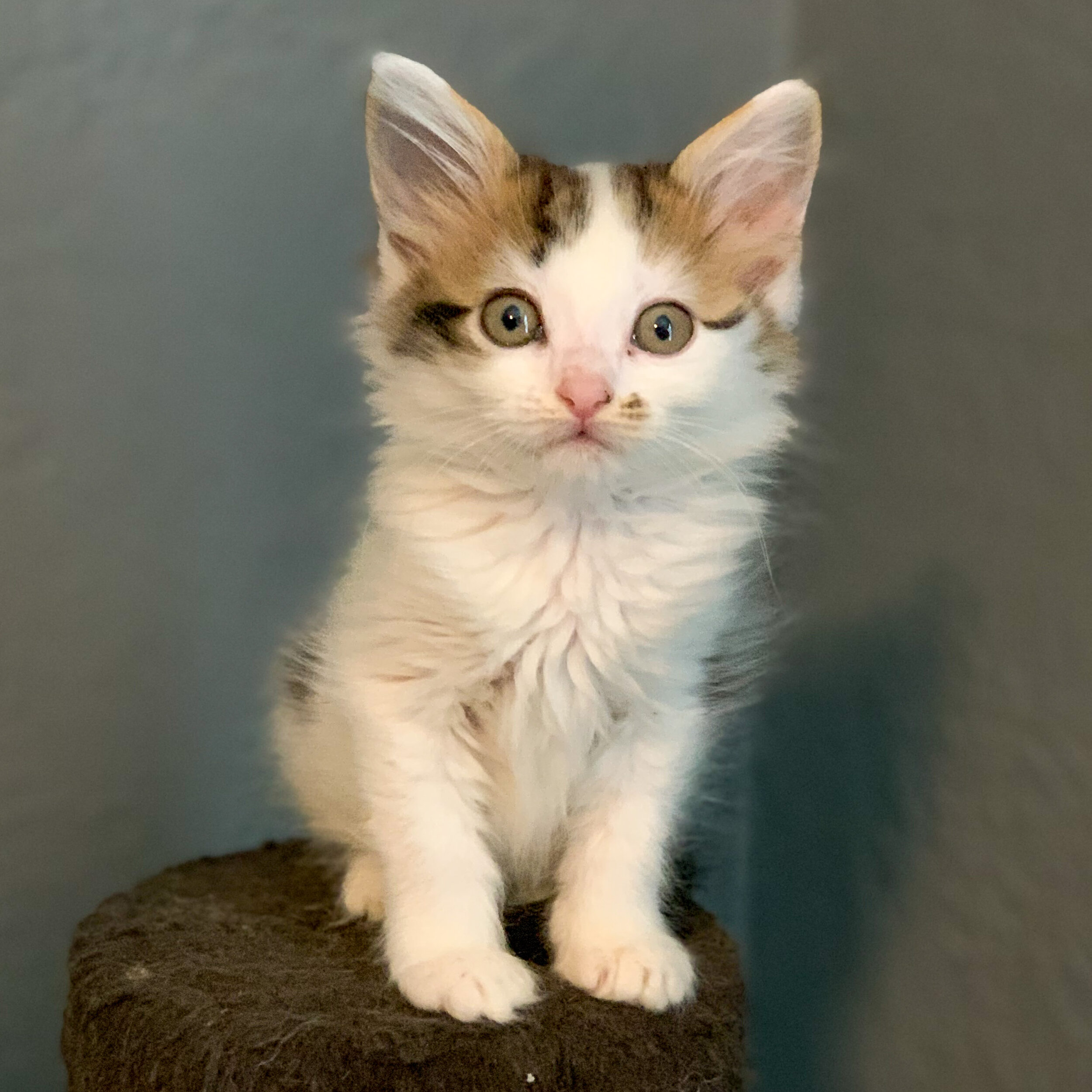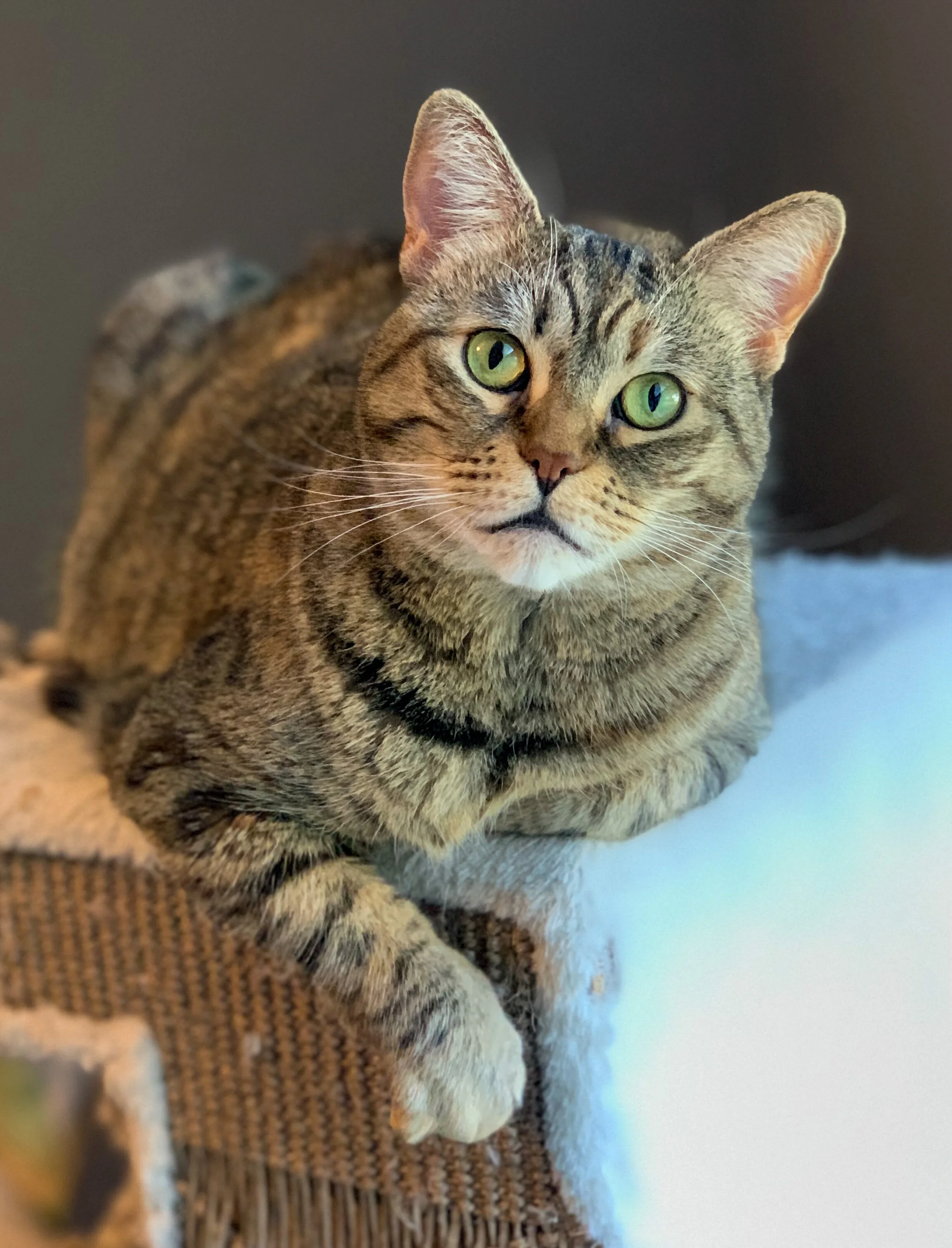Adopt
Interested in adding a new member to your family? That’s wonderful! We are passionate about finding the best homes for the cats in our care and would love to help you find your ideal match. In order to do so, we ask that you first review the policies and information below before taking this exciting step.
Anna, adopted November 2019
Adoption Policies
By adopting from Liberation Cat House (LCH), you are committing to:
Keeping your cat strictly indoors
Never declawing your cat
Caring for your cat for his or her entire life, with the understanding that cats can live up to 20+ years
Kittens under 6 months of age must be adopted in pairs or into a home that already has a young, playful kitty companion. Check out Kitten Lady’s article “Why Two Kittens Are Better Than One!” for more details on this requirement.
For the safety of our kittens as well as children in the home, we do not adopt kittens under 6 months of age into a home with children under 6 years of age.
All LCH cats will be spayed/neutered before an adoption is finalized, and all resident pets in the adoptive home must be altered prior to bringing home a kitty from LCH.
Renters are required to prove that animals are allowed in the home. The best way to do so is by providing a copy of your rental/lease agreement.
Adopters must be at least 21 years of age and financially prepared for the lifetime commitment of a companion animal.
Adoption Process
Potential adopters must complete the following steps for consideration:
Complete the online pre-screening.
(Please send an email to liberationcathouse@gmail.com or DM us on instagram @liberationcathouse for the link to the pre-screening.)Once your pre-screening is reviewed, we will schedule a time for you to meet the cat. This can be done virtually or in-person at the foster home.
If approved for adoption after the meet & greet, we will provide details on completing the adoption agreement and paying the adoption fee.
As soon as the cat has been spayed/neutered, we will arrange a time for you to pick up your new family member!
Adoption Fees
Single kitten (under 7 months old) - $100
Pair of kittens (under 7 months old) - $150
Single cat (7 months and over) - $75
Pair of cats (7 months and over) - $110
Chin Chin, adopted May 2020
Frequently Asked Questions
What sort of things should I consider before adopting a cat or kitten?
Below are links to a few really great articles that will help provide guidance:
Petfinder - Cat Adoption Checklist
ASPCA - General Cat Care
Jackson Galaxy - Before You Get a Cat/Kitten
Cat Behavior Associates - 20 Things Your New Cat/Kitten Wants You to Know
What does the adoption fee include?
Prior to adoption, all cats are spayed/neutered, microchipped, FIV/FELV tested, dewormed, flea treated, and up-to-date on age-appropriate* vaccinations. We also treat any other medical issues that are present during the cat’s time in foster care and do our best to ensure that we are sending you home with a happy, healthy kitty. Please keep in mind that we cannot guarantee the future health of any cat.
*Cats over 6 months of age receive FVRCP and Rabies vaccines. Kittens that are over 3# and 3-6 months of age receive at least their first FVRCP vaccine as well as the Rabies vaccine. Kittens that are 2-3# and 2-3 months of age receive at least their first FVRCP vaccine but do not receive Rabies as they are not yet big/old enough.
What additional costs are associated with adoption?
Depending on the age of the kitten and their length of time in foster care, adopters may be responsible for one or two FVRCP boosters as well as the Rabies vaccine. We will discuss this information with you and clearly outline any vaccines that are still needed at the time of adoption. Adopters are also responsible for all future vet care as well as any supplies that are needed to care for their new family member. Check out the Petfinder Cat Adoption Checklist and ASPCA General Cat Care links for a basic list of necessary supplies.
Will the cat get along with my existing cat/dog?
While this question depends largely on the personalities of all animals involved as well as the animals being introduced appropriately, we do our absolute best to make sure we’re gathering the right information from you in order to find the best fit. We also spend extensive time with our foster kitties to learn their personalities, likes and dislikes, etc., so we can make sure they’re being matched with their ideal forever home.
How do I introduce a new cat to my existing companion animals?
We cannot stress enough that patience and appropriate introductions are SO IMPORTANT for the safety and well-being of all animals involved as well as for the success of integrating new animals together. It’s ideal if you have a separate space in your home, such as a bedroom or bathroom, where the new cat can be housed while working through the introduction period. Introductions can take a few days to a few weeks, and you may find that it’s ultimately several months before all of the animals have fully settled in together and adjusted to their new routine. We are happy to provide guidance along the way, but these articles contain great information on introducing a new cat to your existing animals:
The Humane Society of the United States - Introducing Your New Cat to Other Pets
Jackson Galaxy - The Do’s and Don’ts of Introducing Cats
Why must the cat be kept indoors?
It’s understandable to think that your new cat may yearn for the adventure of the wild outdoors, but the risks for outdoor cats (such as disease, parasites, poisoning, getting struck by a car, being attacked by other cats/animals) far outweigh the rewards. This article from Cat Behavior Associates provides some of the top reasons for keeping your cat indoors as well as the risks for those that are allowed outdoors. The great news is that there are plenty of ways to keep your indoor kitty healthy and enriched! This article from Best Friends Animal Society provides great enrichment ideas for cats.
Why are you opposed to declawing?
Declawing is a traumatic process that can lead to physical and behavioral issues in cats. For more information on declawing and potential issues, please review this article from The Humane Society of the United States. If you have concerns about damage being caused to your home, furnishings, etc., we will be happy to provide you with tips and tricks on caring for your cat’s claws and teaching them where it’s appropriate to scratch. However, please keep in mind that scratching is a natural, necessary behavior for cats, and bringing any animal into your home also brings with it the potential for damage.

